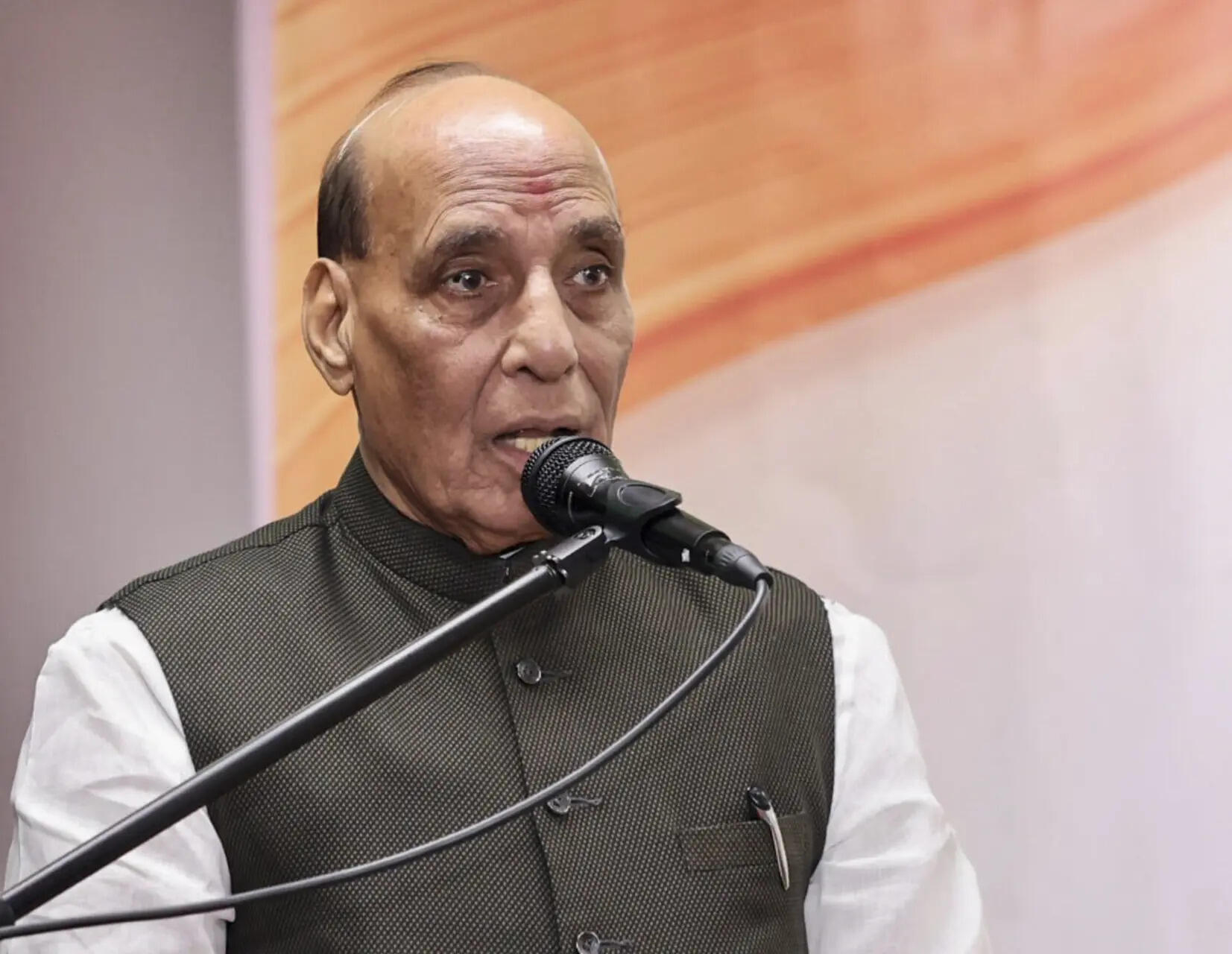
New Delhi, Defence Minister Rajnath Singh on Tuesday reflected on the crying need for reforms in the UN, adding that the international body in its current form faces a crisis of confidence.
Speaking at the United Nations Troop Contributing Countries’ (UNTCC) Chiefs’ Conclave hosted by the Indian Army, Rajnath Singh said, “We cannot fight today’s challenges with outdated multilateral structures. Without comprehensive reforms, the UN faces a crisis of confidence.”
“For today’s inter-connected world, we need a reformed multilateralism: That reflects today’s realities; gives voice to all stakeholders; addresses contemporary challenges; and focuses on human welfare,” he said.
The Defence Minister said, “India, historically as the largest UN peacekeeping contributing country, has the necessary credentials to impart training and develop interoperability between peacekeepers from friendly foreign countries to build the mutual understanding that is essential for mission success.”
He said under Aatmanirbhar Bharat, India has developed cost-effective indigenous technologies that strengthen peacekeeping missions in the form of land mobility platforms, secure communications, surveillance systems, UAVs and medical support solutions.
He highlighted the Indian contribution to involving women peacekeepers. “India has been a pioneer in this domain. Our all-women Formed Police Unit deployed to Liberia in 2007 became a global symbol of empowerment. Their professionalism and compassion inspired a generation of Liberian women to join their national police.”
Today, Indian women officers serve in missions across South Sudan, Golan Heights and Lebanon, leading patrols, engaging with communities, and mentoring local women and youth, he said.
“They represent the best of what modern peacekeeping can achieve — inclusion, respect and trust. In 2024, an Indian Army woman peacekeeper was awarded the United Nations Military Gender Advocate of the Year Award for her exemplary service with the UN peacekeeping mission in the Democratic Republic of Congo,” said the Defence Minister.
“One of the most inspiring transformations in peacekeeping has been the growing participation of women. Their presence enhances the mission’s effectiveness, builds trust with local populations and brings empathy into operations that often unfold in deeply human settings,” he said.
Rajnath Singh said India recognises that the success of peacekeeping depends not only on numbers but on preparedness.
“Our Centre for United Nations Peacekeeping (CUNPK) in New Delhi has trained participants from over 90 countries. The Centre provides immersive scenario-based learning-simulating negotiations with armed groups, humanitarian operations under threat and civilian protection during crises,” he said.
He said India is a voice of advocacy on seeking a greater role for troop-contributing countries in mission mandate formulation. Those who serve in the field and bear the risks must have a meaningful voice in shaping the policies that guide their mission.
Rajnath Singh said that peacekeeping is a collaborative effort that relies on unity of purpose. It is imperative that troop contributing countries, the UN Secretariat, host nations and regional organisations work in harmony to ensure envisaged outcomes.
The UNTCC serves as a vital forum to address operational challenges, evolving threats, interoperability, inclusivity in decision-making and the role of technology and training in strengthening UN peacekeeping.
The conclave is witnessing participation from Algeria, Armenia, Australia, Bangladesh, Bhutan, Brazil, Burundi, Cambodia, Egypt, Ethiopia, Fiji, France, Ghana, Italy, Kazakhstan, Kenya, Kyrgyzstan, Madagascar, Malaysia, Mongolia, Morocco, Nepal, Nigeria, Poland, Rwanda, Sri Lanka, Senegal, Tanzania, Thailand, Uganda, Uruguay and Vietnam, said a Defence Ministry statement.
The event stands as a testament to India’s unflinching commitment to global peace, stability and shared prosperity, the Defence Ministry said in the statement.

